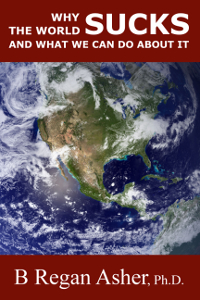There was an interesting article in this week’s Economist (27 April 2019) entitled “To be young is not quite heaven”. In it, the magazine noted how religion in America has become less important to a new generation. This is hardly surprising. Throughout the Western world, religion has been in decline, no more so than in Western Europe. In fact, the real surprise is how resilient religion has been in the United States compared to other countries.
Interestingly, the article differentiated between belief in an afterlife and belief in a religion. Our youth may even believe in an afterlife more strongly than previous generations; they just don’t put as much stock in their parents’ religious institutions.
Again, this is hardly surprising. As we learn more about how the world works, it seems only natural for religion to appear anachronistic. The earliest religions were little more than superstitions created in a desperate effort to explain a mysterious and frightening the world. Today, with the benefit of various technologies and, more importantly, with the benefit of the Scientific Method, we have been able to objectively explain many of the natural phenomena that vexed us as early hominids.
But the benefit of science over religion is not just about better explanations. This week we were also reminded how religion can hurt its own adherents. America is going through its worst case of measles in over a generation, in large part due to the bad choices made by one religious community. The latest outbreak seems to stem from the refusal of some religious Jews in New York City to give their children the measles vaccine. Up until now that refusal was legal because religious exemptions were available. But, because of the obstinacy of that community and the danger that their actions pose to the rest of the population, New York State is now poised to rescind those exemptions.
The queerest part of this story is that the the New York parents don’t seem to be refusing the vaccinations on religious grounds; it seems to be a result of the spread of bad information. But there is still a religious angle here; the isolation of religious communities makes it easier for bad information to take hold in such an insular setting. And it is the religious exemption that is providing the community with the excuse to ignore a law that is meant to protect everyone.
As a society we have to decide how much we want to protect the right of our citizens to live in ignorance. Future progress can really only come through the objectivity of the sciences. Science is not necessarily truth but, by definition, so long as it is rigorous it is the best approximation to truth that we have at any instant of time. For religious groups to deny scientific evidence on the basis of their faith may be fine for adults who choose to do so. But if their actions threaten the rest of the population or, some may argue, if their actions threaten their own children, then that is where the line must be drawn regarding religious freedom.
We will probably always have the deniers: those that think the world is flat, that the space program was an illusion, that modern medicine goes against the will of a supreme being, that there is a world banking conspiracy, that vaccinations don’t work. But with improved education and a refusal to indulge those who would threaten the lives of others, we can better progress as a civilization and as a species.
When humans lived in caves everyone was probably, in some sense, religious. Today the percentage in the West is well under 50%. As we learn more about the world and as we demand solid evidence for the important decisions we make in life, that percentage is destined to trend toward zero. For the population at large and for the future of those communities that today refuse to accept scientific fact, that can only be a good thing.

